- Home
- Janelle Taylor
Sweet Savage Heart Page 3
Sweet Savage Heart Read online
Page 3
Returning home, Travis had informed Nathan of the master craftsman’s arrival. As Marissa’s portrait was in dire need of expert attention, Nathan had sent Travis back to town to bring Thomas to the ranch to examine his daughter’s portrait and to discuss its restoration.
At first glance, the eagle-eyed artist had gaped at the portrait that he was being asked to revitalize. To explain his curious reaction, Thomas had pulled two canvases from an over-sized leather satchel, unwrapped them, and handed them to Nathan. “I brought along some of my favorite paintings to let you judge my work for yourself. Now you can understand my astonishment, Mister Crandall. They could almost be the same person. Such resemblance… It’s incredible.”
The owner of the Rocking C Ranch tried to master his shock in order to think clearly and calmly. “Who is this girl? When did you paint these? Where?” Nathan demanded hoarsely, the questions suddenly tumbling over each other from his dry mouth.
Thomas Mallory pulled his probing gaze from Marissa’s portrait and focused it on the anguished expression of his eminent host. “Her name is Watogla Tate. She’s the daughter of Chief Soaring Hawk of the Sioux. I spent most of the winter and spring traveling through the Dakota Territory, painting chiefs and warriors. When I saw that girl, I had to paint her. So much beauty and vitality for a maiden of eighteen years. No artist or healthy male could ignore a face like hers. Nor that one,” he added hoarsely, motioning to Marissa’s fading portrait.
“Wato… what?” Nathan asked anxiously.
“Wa-to-gla Ta-te,” Thomas repeated. “It means Wild Wind. Clearly she isn’t Indian, not with that red hair and those gray-blue eyes. I wonder how those Sioux got hold of her and why they made her a chief’s daughter.” He turned to continue his study of the painting, which was desperately in need of repairing and retouching.
Nathan placed the smaller paintings on either side of Marissa’s portrait and stared at the images side by side. The sixty-three-year-old man ran shaky fingers through mussed hair, the color of which shifted more from blond to silver with each passing year. As time seemingly halted, Nathan visually compared the Sioux Indian princess, Watogla Tate, to his deceased daughter, Marissa. His heart began to pound forcefully.
With an eye for detail, Thomas Mallory pointed out each matching or similar feature. Both women had large eyes, but Marissa’s were a cornflower blue, whereas Wild Wind’s were the color of a Texas winter sky just before dusk, an entrancing gray-blue. Each set of eyes exposed an air of mystery and sensuality. Thick red hair in masses of waves and curls tumbled over slender shoulders to small waists, hair that came alive with fiery color, that seemingly flowed wild and free like the rain-swollen river whose banks could not confine its abundance and energy. Marissa’s portrait had been painted inside while Watogla Tate’s had been painted outside, and therefore Wild Wind’s tresses revealed golden highlights that Marissa’s lacked. Both women seemed to exhibit a love for the outdoors, displaying sun-kissed golden flesh with a barely noticeable smattering of pale freckles. The shapes of their noses, faces, and chins matched perfectly. It was eerie. “This resemblance is fascinating. I would like to meet your daughter. Perhaps she could pose for a new portrait after I complete my repair work on this one. I would guess it’s around… twenty years old?” he hinted as he critically eyed the aging portrait.
Nathan nodded. Despite his reluctance, he had to think, to remember those painful times. “I’m afraid that isn’t possible, Mister Mallory. Eleven years ago, Marissa was murdered by Kiowa Indians. The red bastards attacked her stagecoach and slaughtered everyone on it but my seven-year-old granddaughter. They kidnapped her. For years I searched for Rana and offered large rewards for her return. Nothing. I couldn’t bear the thought of her being enslaved and abused by those murdering savages, so it seemed easier to accept her as dead, like her mother. She was eighteen this March, if she’s still alive.” Nathan’s eyes were glued to the canvases. “After years of torment and doubt, have I found my little Rana? Look at her. She’s the spittin’ image of my Marissa. It has to be my granddaughter. But how did the Sioux get her away from those Kiowas? Their territories are far apart and they’re fierce enemies. How could a white captive become a Sioux chief’s daughter? How can she look so dadburn happy?”
Mallory turned and glanced at the distressed man. “It seems I’ve brought the image of a ghost to your home, sir. I’m truly sorry.” After looking at the portraits and at Nathan again, he shook his head and refuted his words. “Not a ghost, but wonderful news of your missing granddaughter. She has your eyes, sir. How marvelous to create such a happy event. You must be ecstatic to discover she is safe and happy.”
“Hell, no!” Nathan shouted. “The only thing that will please me is to get her back home where she belongs. And, by God, I will.”
“But what can you do to recover her, Mister Crandall? Even if you can prove she’s your granddaughter, Chief Soaring Hawk wouldn’t turn his daughter over to a white man. Most of those Sioux despise white men. You can’t blame them, with whites and soldiers taking their lands, killing off hundreds of them, and herding the survivors onto reservations like cattle. Those treaties are worthless to both sides. I had a terrible time getting into their camps and getting permission to paint some of them. Conflicts are brewing all over that territory; that’s why I had to get out so fast. Settlers are pouring in, and the Indians don’t like it. If this girl is your granddaughter, perhaps she doesn’t even recall her childhood. Eleven years is a long time away from family and civilization. Chief Soaring Hawk and his son, Lone Wolf, seemed crazy about her. Besides, those Indians are nomads. How would you locate her and steal her? I was told the Sioux are the largest and mightiest Indian nation in the West. It could cause a war.”
“I’ll get her back the same way those Indians snatched Rana from her home and family—by force! She’s my granddaughter; she belongs here with me. Travis will help me get Rana back,” Nathan declared confidently, nodding toward the young man who had been his ranch foreman and like a son to him for seven years.
Travis Kincade had gone unnoticed during the conversation between Nathan Crandall and Thomas Mallory. He had been sitting in a large chair in the rear of the room and had listened intently as his friend and boss had questioned the artist about the intoxicating girl in his paintings, a woman whose expression and pose blended perfectly with the wildness and striking beauty of the landscape behind her.
“What do you think, Travis? Is this my Rana?” Nathan asked, even though he knew without a doubt that she was Marissa’s child. He was charged with a variety of uncontrollable emotions as he looked into the face that mirrored his lost child’s features.
Travis joined the men before the fireplace. Seeing the girl’s clothing had brought to life a flood of haunting memories and suppressed feelings. Long ago he had lived as a Lakota warrior, and an Indian maiden had gotten him into peril; she had not only ruined his existence but had also nearly cost him his life. Repressing his past, he compared the two women. Both were of medium height and possessed shapely figures of the variety that could entice moisture above a man’s upper lip and a tightening in his pants, though such reactions only supported his belief that most women were nothing but trouble. He unknowingly focused his full attention on the fascinating creature in a heavily beaded white buckskin dress. Her unmarred complexion glowed as if the sun had turned to lather and had bathed her in its golden foam, permanently staining her silky flesh.
In one portrait, the girl’s hair was in braids and she was wearing a beaded headband and matching braid ties. In the other, his favorite, her thick hair fell wild and free to her waist. If the sun’s rays had not caused it to seemingly burst into fire, her wavy tresses would have appeared a medium auburn shade. A small medicine wheel, made of quills in the sacred colors with a breast feather dangling from its center, was secured just above her right ear. Travis knew a Sioux medicine wheel had to be earned before one could wear it, as a warrior must earn a coup feather. He wondered what brave deed
had prompted her tribe to gift her with it. As more turbulent memories stormed his vulnerable mind, he tried to deter them, as he had for years. He could not quite succeed.
Travis’s green eyes settled on the girl’s winter blue ones. Unlike Marissa’s knowing look, which revealed she had tasted some of life’s wanton offerings, Wild Wind’s alluring gaze had a glow of innocence, a glow that hinted at eagerness to explore life. Oddly, he warmed at the undeniable spark of magic and vitality that flowed out to him from Watogla Tate’s expression. She was a rare beauty who could strike a man speechless or halt him in his tracks. She was trouble of the highest degree and had probably crushed many men. For years he had noticed Marissa Michaels’s portrait and beauty, but it was the Indian girl’s image that affected his respiration and pulse; it was Chief Soaring Hawk’s adopted daughter who caused his curiously susceptible mind and body to do more than stare. And this was most unusual considering his sardonic attitude toward women, an attitude that had been forced on him.
Travis became aware of the silence and the fact that the two men were staring at him. He scolded himself for his foolish reaction to a mere painting of a beautiful woman, one who doubtlessly used her looks as a potent weapon. “It could be her, Nate, or just a wild coincidence. But you’ll surely pay hell if you try to steal her from Soaring Hawk and his Oglala band. Didn’t you hear Mallory? She’s considered the chief’s daughter.”
Nathan and Travis stared at each other as if speaking without words. Nathan realized his mixed-blooded, twenty-seven-year-old foreman knew what he was talking about, for Travis Kincade had been born and reared as Hunkpapa, one of the most powerful tribes in the Lakota branch of the Sioux Nation, as was the Oglala tribe, which had his granddaughter. Before settling on the Rocking C Ranch seven years ago, Travis had been a defensive and wary loner, a drifter, and a devilish rogue who had been a master of many skills and charms and had used them without mercy or hesitation whenever necessary. Born and trapped between two warring cultures, Travis had grown up too fast and too hard. Although he and Travis were now very close, Nathan knew there were things Travis had never told him or anyone, things that haunted the young man and had made him cynical and rebellious.
After leaving the Indians at the age of eighteen, the troubled youth had wandered from place to place, observing and learning about life and people, and constantly honing his skills and body. The fearless and cunning man had worked many jobs inside and outside of the law. Even when he had ridden as an Army scout and U.S. Marshal, he had owed loyalty to no man or force but himself. Travis had become a man of immense physical prowess. Confident and self-contained, he had always sought the danger, excitement, challenge, and intrigue of any new and stimulating adventure. Then Nathan had crossed Travis’s path.
Travis was also recalling his first meeting with Nathan Crandall. It had been the second time the young man had almost lost his life. The first had been at the hands of Indians and, when Nathan found him, Travis had just experienced the treachery of a spiteful white vixen. Nathan had come across the critically injured youth near St. Louis, during a Rocking C cattle drive. The older man had personally doctored him back to health. Some of the most difficult challenges Travis had had to face had been controlling his restive spirit, learning to trust and love, and yielding to his new fate during his physical and emotional healing process. Nathan had brought him to this ranch to recuperate, but he had been persuaded to stay on as foreman. Over the years the two had formed a deep, strong bond of friendship, dependence and loyalty. Nathan had become like a father to him and had made vast changes in his character and his way of life. This ranch had become his home and part of his responsibility. He had found acceptance and respect here; he had found happiness and a sense of belonging; he had found himself, his place in life—things that had been stolen from him nine years ago…
He had been born the mixed-blooded son of a Hunkpapa woman and a white man, and had been raised in the Lakota way. When he was eighteen and a seasoned warrior, a lethal and unjust travesty had destroyed all he had been and had known and loved. His mother’s people had accused him of being a traitor and had tried to slay him. Their treachery and betrayal had cut him deeply and painfully; it had sapped his belief in good and evil, and had shaken his faith in the Great Spirit. It was as if all he had done and had become had been in vain. If they could believe he was guilty of such wicked deeds and could order his torture and death, their past love and acceptance had been lies; his entire life had been a cruel lie. Because of one man’s and one woman’s greed and treachery, he had been forced to become a renegade.
Even after all these years, reflecting on that betrayal sliced through his heart and soul like an enemy’s whitehot knife. By turning against him so bitterly, the Hunkpapas had robbed him of many precious things: his very existence, his honor, his trust, his hopes and dreams, his confidence. And, for awhile, they had stolen his heart and soul. They had made him become leery, resentful, hostile, hard. They had taken part of his selfesteem and, for the first time in his life, had made him feel worthless, scared, weak, helpless. For a man’s desperate lie and a woman’s selfishness, he had been sentenced to death by his own people and, fleeing that injustice, he had become an outcast, forever estranged from his Indian lands and ways.
Two years after that tragic episode and just as he was beginning to feel and to care once more, an evil white woman had attempted to ensnare him, and, failing that, destroy him. His bitterness, mistrust, and cynicism had increased. To avoid being hurt or betrayed again, he had tried to resist any feelings or contacts that could lead to more anguish and rejection. Then Nathan Crandall had entered his life…
Nathan had accepted him for himself and had proved there were people who were not selfish or traitorous. Despite what the Kiowa Indians had done to his daughter and granddaughter, Nathan had not resented him or held him accountable, though most whites hated all Indians and they persecuted all of them for the evils of a few. As for “half-breeds,” they were despised and scorned by both sides. It was only because his mother had been a war chief’s daughter that the Indians had accepted him, until a grasping foe had maligned him and turned his mother’s people against him.
Not so with this white friend. Nathan was a rare man, a good and kind man. Nathan would never turn against him unless he was convinced Travis was guilty of some crime; then Nathan would doubt it until he was given absolutely unquestionable evidence. And, despite such evidence, Nathan would probably try to rationalize the deed and pardon him. After all this man had done for him and was to him, Travis hated to think of Nathan being hurt by this fantasy of regaining his missing granddaughter. By now, that girl was no longer white, no longer his family…
Nathan saw Travis’s look of deep concern and affection. “That’s my daughter’s child, my own flesh and blood. Surely you don’t expect me to sit here and do nothing?” he asked softly.
“Of course not. We’ll just have to do some clever planning before we take off to Soaring Hawk’s camp. If that’s Rana, there’s no telling what she’s been through since her capture. We’ll need to walk this path slowly and carefully, Nate. First, we have to make certain she is Rana Michaels; then we’ll have to figure out a safe way for you to stake your claim on her to get her free of the Oglalas and back home. She’s probably been there a long time and might not want to leaye. This won’t be quick or easy, Nate.”
“Nothing good or right ever comes fast and easy. I’m used to hard work and patience, Travis; but this time, it’s damned difficult to practice them.” What if Travis was right? Nathan reflected silently. What if Rana had forgotten her family? What if the Indians refused to release her or she refused to come home with him? After all, during her childhood Rana had seen him only a few times. He looked at Thomas Mallory and asked, “Can I buy those two portraits of Rana? Name your price.”
Thomas replied, “Normally I would say no; but this time I’ll agree. We can discuss a reasonable price later.” He glanced at the clock. “I must be hurrying al
ong. I have a dinner engagement tonight. The restoration of your daughter’s portrait should require five to seven days. If we have a deal, Mister Crandall, I’ll complete my work in Fort Worth tomorrow and return here Sunday afternoon.”
Nathan shook hands with the artist. “I’ll have one of my hands pick you up at the hotel around three Sunday afternoon. Thank you for bringing me the news of my granddaughter’s survival and her location.”
“I wish you luck in accomplishing her return. As your man said, it won’t be an easy task to recover her. We can discuss her and your impending journey Sunday evening when we have more time.”
Travis remained before the immense fireplace while Nathan escorted the artist to the waiting buggy. When Nathan returned, he poured himself and Travis a whiskey. The younger man turned and watched his older friend as the man collapsed wearily into a chair. “I know this must be hard on you after all this time of considering her lost forever. Are you sure it isn’t best to leave her where she is, Nate? Stealing her back could be as traumatic for her now as her abduction was years ago. Look at her, Nate. That isn’t the expression of a miserable, lowly captive. Clearly she’s done well for herself. Those Oglalas are her family now. I would think long and hard before I interfered. I know what it’s like to be caught between two warring peoples, and I know how hard change is. She can’t replace Marissa.” Travis almost hated the idea of a “Marissa” coming to live with them. She could turn their lives inside out and wreak havoc on their emotions. He instantly realized that his was a selfish attitude and scolded himself. If she was Rana, she deserved to be rescued and given another chance.

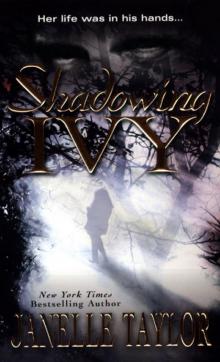 Shadowing Ivy
Shadowing Ivy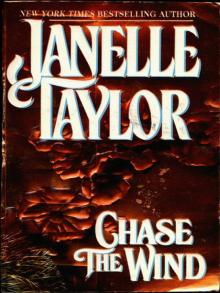 Chase The Wind
Chase The Wind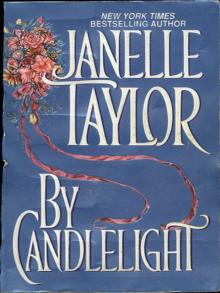 By Candlelight
By Candlelight Kiss of The Christmas Wind
Kiss of The Christmas Wind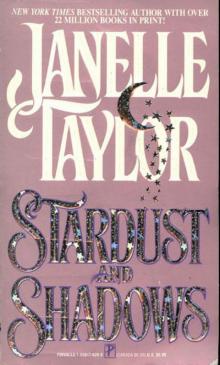 Stardust And Shadows
Stardust And Shadows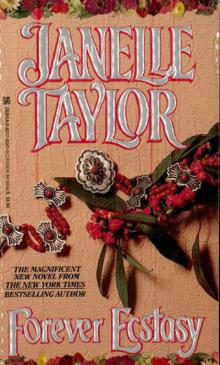 Forever Ecstasy
Forever Ecstasy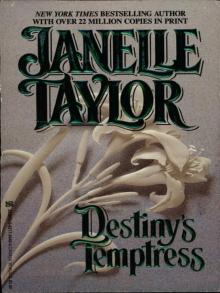 Destiny's Temprtress
Destiny's Temprtress Haunting Olivia
Haunting Olivia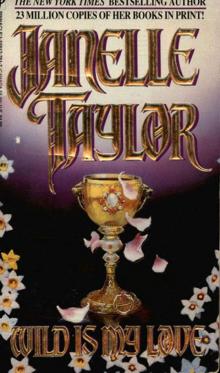 Wild Is My Love
Wild Is My Love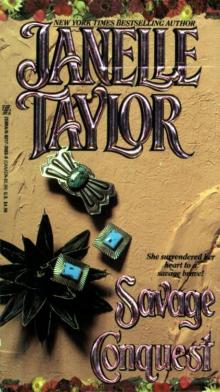 Savage Conquest
Savage Conquest Valley of Fire
Valley of Fire A Christmas Surprise
A Christmas Surprise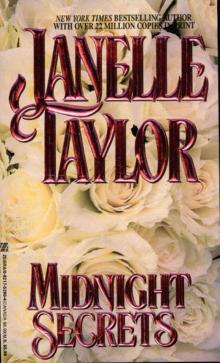 Midnight Secrets
Midnight Secrets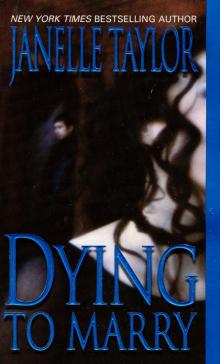 Dying To Marry
Dying To Marry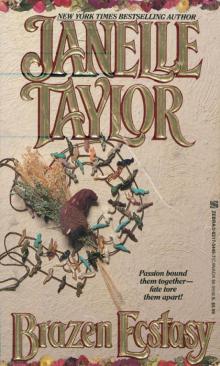 Brazen Ecstasy
Brazen Ecstasy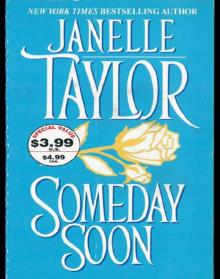 Someday Soon
Someday Soon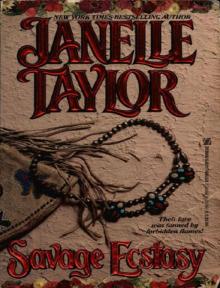 Savage Ecstasy
Savage Ecstasy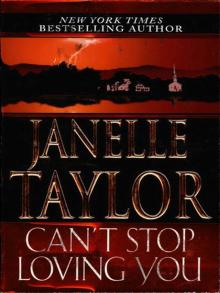 Can't Stop Loving You
Can't Stop Loving You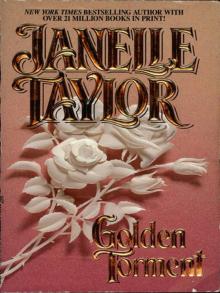 Golden Torment
Golden Torment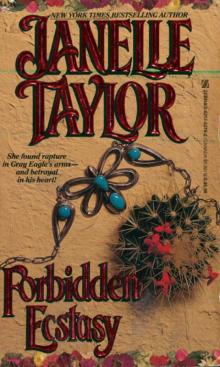 Forbidden Ecstasy
Forbidden Ecstasy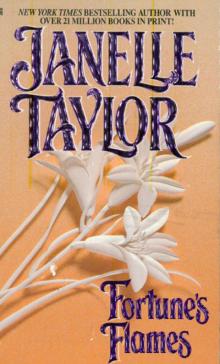 Fortune's Flames
Fortune's Flames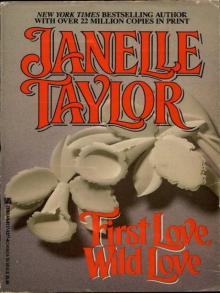 First Love Wild Love
First Love Wild Love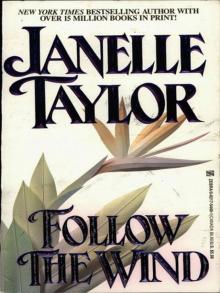 Follow The Wind
Follow The Wind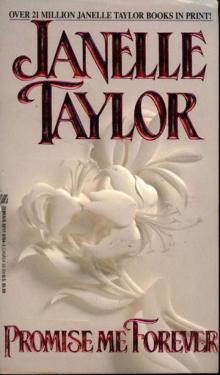 Promise Me Forever
Promise Me Forever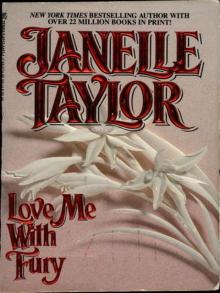 Love Me With Fury
Love Me With Fury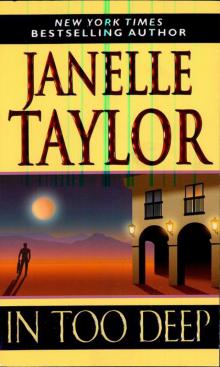 In Too Deep
In Too Deep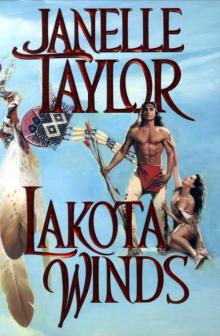 Lakota Winds (Zebra Historical Romance)
Lakota Winds (Zebra Historical Romance)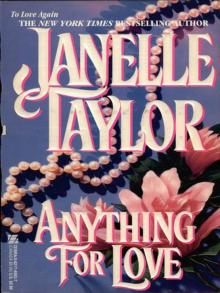 Anything For Love
Anything For Love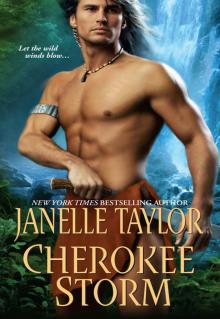 Cherokee Storm
Cherokee Storm Straight From The Heart
Straight From The Heart Don't Go Home
Don't Go Home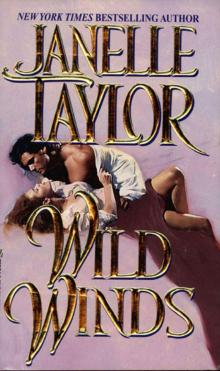 Wild Winds
Wild Winds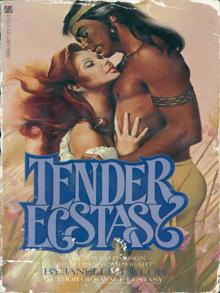 Tender Ecstasy
Tender Ecstasy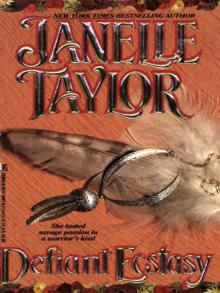 Defiant Ecstasy
Defiant Ecstasy Defiant Hearts
Defiant Hearts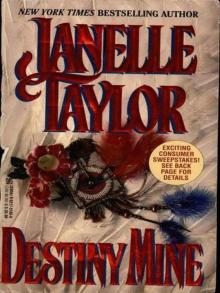 Destiny Mine
Destiny Mine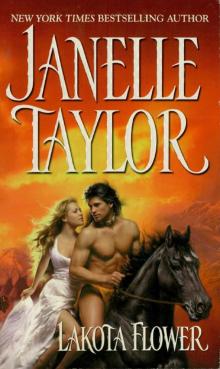 Lakota Flower
Lakota Flower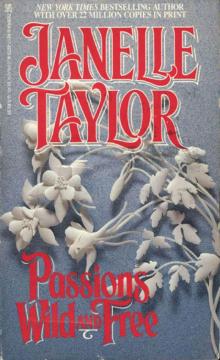 Passions Wild And Free
Passions Wild And Free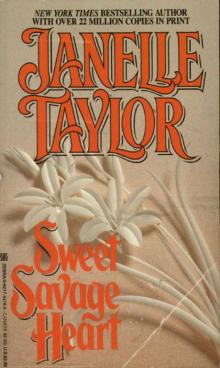 Sweet Savage Heart
Sweet Savage Heart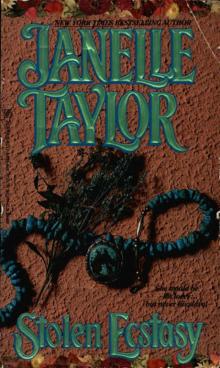 Stolen Ecstasy
Stolen Ecstasy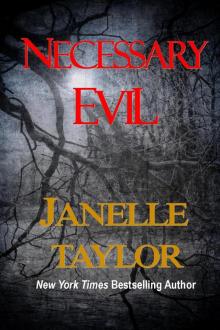 Necessary Evil
Necessary Evil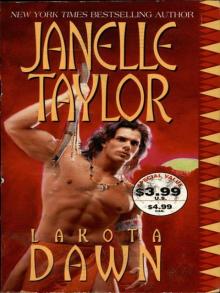 Lakota Dawn
Lakota Dawn